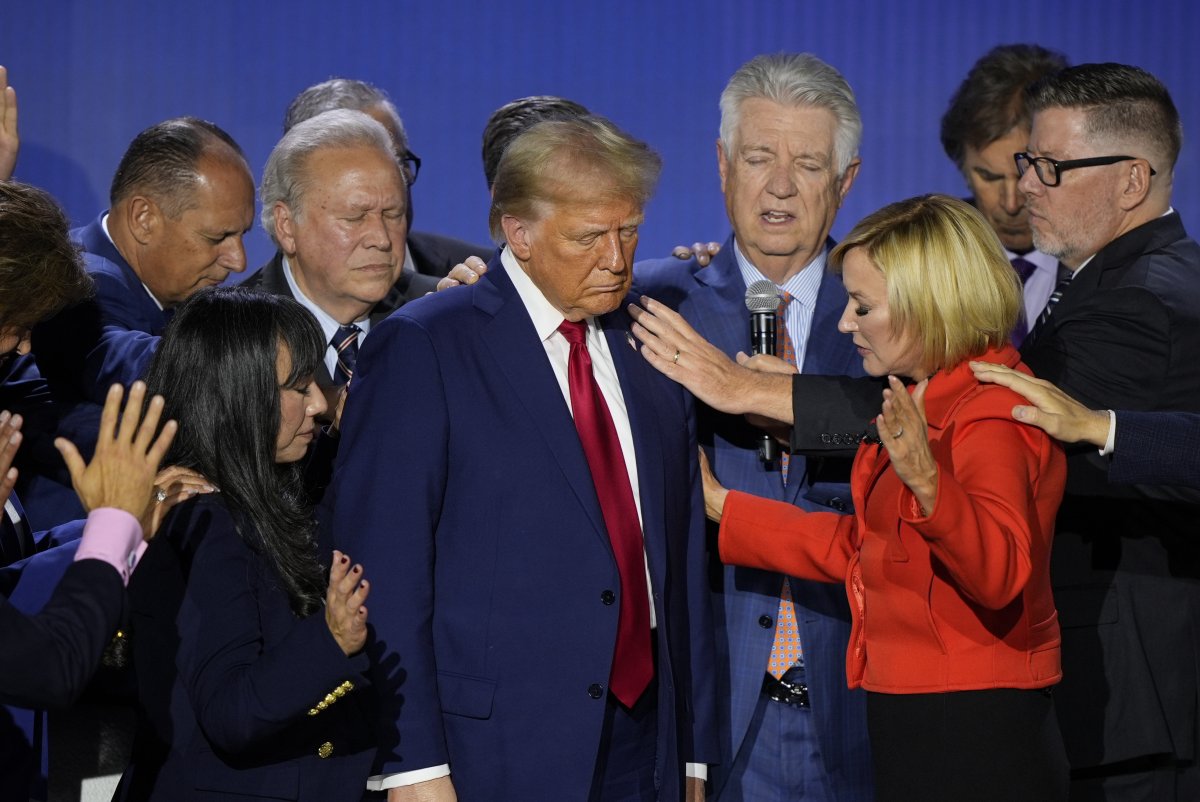In a stunning political comeback, Donald Trump won the 2024 presidential election, a victory many attribute to the overwhelming turnout of Christian voters. His campaign, which heavily emphasized traditional values and religious freedom, resonated with faith-based communities across the nation.
Throughout his campaign, Trump framed the election as a critical battle for the soul of America. He repeatedly highlighted issues such as the sanctity of life, religious liberty, and the preservation of traditional family values, themes that energized his Christian base.
According to exit polls, 81% of white evangelical Christians voted for Trump, a figure mirroring his support in the 2016 election. However, what set this election apart was the increased turnout among Hispanic and African American Christians, groups that had previously leaned Democratic in recent elections.
In swing states like Pennsylvania, Michigan, and Wisconsin, Christian voters played a decisive role. Faith-based voter drives and church-led initiatives to increase turnout were pivotal in delivering these states into Trump’s column, often by narrow margins.
One of the most significant issues driving Christian turnout was abortion. Following the overturning of Roe v. Wade in 2022, the question of abortion rights was returned to the states, sparking intense debate. Trump’s firm stance on supporting pro-life policies galvanized voters who viewed this election as a critical moment to solidify gains on this issue.
Religious freedom also emerged as a central theme. Trump’s promise to protect churches and religious organizations from perceived government overreach struck a chord, particularly among those who felt their rights had been threatened during the COVID-19 pandemic.
Christian leaders played a crucial role in mobilizing their congregations. Prominent pastors and religious figures endorsed Trump, urging their followers to vote their convictions. This direct appeal from the pulpit, combined with grassroots organizing, created a powerful movement.
The Trump campaign also effectively used digital platforms to engage Christian voters. Through targeted ads, social media outreach, and virtual town halls with faith leaders, they successfully harnessed technology to spread their message and counteract narratives from the mainstream media.
Trump’s rhetoric about restoring America’s greatness resonated deeply with Christians who felt their values were under attack. Many saw his leadership as a bulwark against what they perceived as a cultural drift away from the nation’s Judeo-Christian roots.
The Democratic Party’s platform, which emphasized progressive social policies, may have alienated some religious voters. Issues like gender identity and LGBTQ+ rights were seen by many in the Christian community as conflicting with their beliefs, further solidifying their support for Trump.
Political analysts have noted the enduring power of religion in American politics. While secularism has been on the rise, the 2024 election underscored the influence of faith-based communities, particularly when they are mobilized around shared concerns.
Despite criticism from some quarters about mixing politics and religion, Christian voters defended their involvement as a natural extension of their civic duty. They argued that their faith compels them to engage in public life and advocate for policies that align with their moral convictions.
Looking ahead, Trump’s victory is likely to have lasting implications for the Republican Party. The Christian coalition that propelled him to victory could shape the party’s platform and priorities in the coming years, ensuring that religious values remain central to its agenda.
Democrats, meanwhile, are expected to re-evaluate their approach to faith-based voters. Some within the party have called for greater outreach to religious communities, arguing that faith and progressive values are not mutually exclusive.
As the nation moves forward, the 2024 election serves as a reminder of the enduring power of conviction-driven voting. For many Christians, this election was not just a political contest but a mission to uphold their vision of America’s moral and spiritual foundation.
